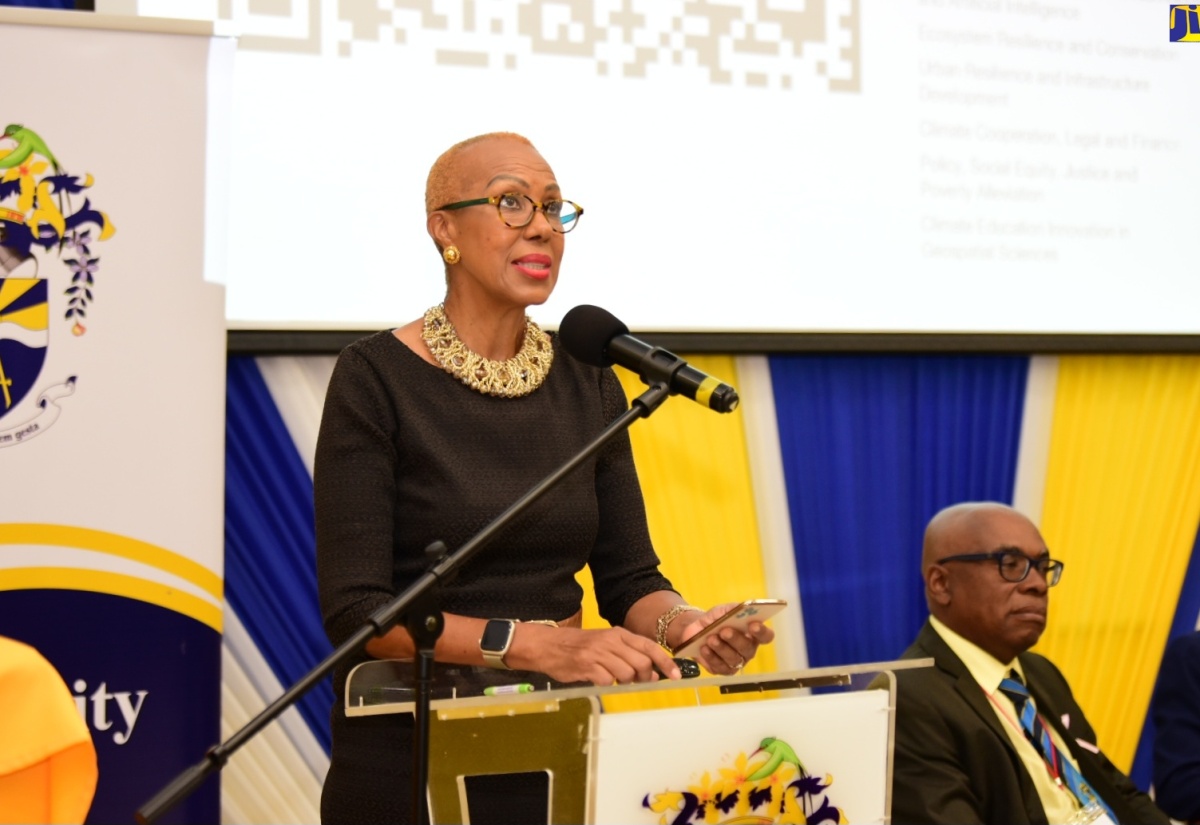The Ministry of Education and Youth is undertaking measures to strengthen schools’ infrastructure to make them more climate resilient, says Portfolio Minister, Hon. Fayval Williams.
“We are revising the Building Standards under the Green Building Strategy. So far, stakeholder consultations have taken place and we are in the process of implementing rainwater harvesting, exploring renewable energy sources such as the use of solar power and examining ways to enhance energy efficiency,” she said.
The Green Building Strategy aims to enhance the sustainability of school buildings by implementing eco-friendly practices, such as solar energy utilisation and water conservation systems.
These measures also encourage environmental stewardship, promoting a more sustainable future.
Minister Williams made the disclosure while addressing the opening ceremony for the inaugural International Climate Change Conference at the University of Technology, Jamaica (UTech) in Papine, St. Andrew, on Thursday (October 17).
She also advised that climate change education is included in the National Standards Curriculum as early as grade three, with a focus on the physical environment.
“This continues, and by the time students get to grade six, they are being introduced to climate change in more explicit ways, learning about its causes and consequences,” the Minister pointed out.
Mrs. Williams said that as these students move into upper secondary education, they have the option to pursue subjects like Green Engineering and Renewable Energy at the Caribbean Advanced Proficiency Examination (CAPE) level.
This, the Minister informed, is “designed to empower our young people with the knowledge and skills they need to understand climate science, embrace sustainability practices and think critically about the solutions required to address these challenges”.
Mrs. Williams said research indicates that when students are equipped with knowledge about climate science and sustainability, they are more likely to make informed decisions, adapt green practices and contribute to a more resilient society.
She maintained that “climate change, as we know, cannot be tackled in isolation, but must take place collaboratively”.
“It is for those reasons that I am encouraged when I see our own education stakeholders participating in international activities like the Climate Action Project now under way, with millions of other teachers and students from across the globe taking action, relying on creativity, empathy and critical thinking in synchronous and asynchronous ways over the course of six weeks, to work through real-world problems,” the Minister said.
Mrs. Williams emphasised that addressing climate change will not yield overnight solutions, pointing out that it requires sustained time and effort.
“The fight against climate change is akin to a marathon, not a sprint; and while it may take time, every action counts and every effort matters,” she added.
In this regard, Minister Williams commended UTech for hosting the conference and creating a space where leaders, students and educators can come together to share ideas, strategies and solutions.


